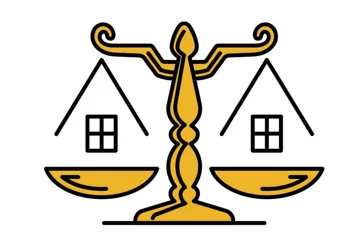GUIDE TO FOREIGN INVESTMENT IN NIGERIA
According to Section 8 (1)(a)(b) of the Immigration Act CAP I1 Laws of the Federation of Nigeria 2004, no person other than a citizen of Nigeria is permitted to establish, take over any trade or business, register or take over any company with limited liability, or do any of the aforementioned without the written consent of the Minister of Interior.
This is because operating a business in Nigeria requires obtaining business permits from the Ministry of Interior. Over time, globalization, which was once a weapon for colonization, changed into what is now known as foreign investment. Every company experiences a point where it becomes urgently necessary to grow outside of its own country. Every person has been a foreigner at some point.
Foreign investments have significantly boosted the economy in Nigeria. It should be mentioned that because Nigeria has a free market economy, foreigners are not prohibited from establishing a business there, provided they meet certain standards.
GUIDE TO STARTING A BUSINESS AS A FOREIGNER IN NIGERIA
● Registration/Incorporation of a company
● Approval for business permits from the Ministry of Interior
● Immigration Requirements and Residence Permit (CERPAC)
● Application for Expatriate Quotas
● Registration with Nigerian Investment Promotion Commission (NIPC)
● Taxation & Tax Identification Number (TIN),
● Registration for Export Certificate
● Approval for requisite licenses
● Procurement of Certificate of Capital Importation.
INCORPORATION OF A BUSINESS
It is crucial to remember that, with a few exceptions, only Nigerian registered enterprises are permitted by law to legally conduct business in Nigeria. The Corporate Affairs Commission is the agency in charge of business registration, and anyone from outside of Nigeria who wishes to open a business must register with them. The Companies and Allied Matters Act, 2020 (“CAMA”) includes the following in Section 78 to establish the necessary context for this:
Subject to sections 80 – 83 of this Act, every foreign company which before or after the commencement of this Act was incorporated outside Nigeria, and having the intention of carrying on business in Nigeria, shall take all steps necessary to obtain incorporation as a separate entity in Nigeria for that purpose, but until so incorporated, the foreign company shall not carry on business in Nigeria or exercise any of the powers of a registered company and shall not have a place of business or an address for service of documents or processes in Nigeria for any purpose other than the receipt of notices and other documents, as matters preliminary to incorporation under this Act.
The Act also specifies the kinds of businesses that anyone, including foreign nationals, may engage in, and these include limited liability companies, unlimited liability companies, and companies limited by guarantee.
BUSINESS PERMITS FROM THE MINISTRY OF INTERIOR
According to Section 8 (1)(a)(b) of the Immigration Act CAP I1 Laws of the Federation of Nigeria 2004, no person other than a citizen of Nigeria is permitted to establish, take over any trade or business, register or take over any company with limited liability, or do any of the aforementioned without the written consent of the Minister of Interior.
This is because operating a business in Nigeria requires obtaining business permits from the Ministry of Interior. This is an operational permanent permit for the local operation of a business with expatriate investment, either as a branch or subsidiary of a foreign company or otherwise.
IMMIGRATION REQUIREMENTS AND RESIDENCE PERMIT (CERPAC)
The official name of the residence and work permit in Nigeria is the Combined Expatriate Residence Permit and Alien Card (CERPAC). It is a card provided to an expatriate or foreigner allowing him to reside and work in Nigeria for a defined period of time. In Nigeria, the Comptroller General of Immigration is empowered to issue a Nigerian residence permit under the watch of the Ministry of Interior.
The Residence and Work Permit in Nigeria is officially known as the Combined Expatriate Residence Permit and Alien Card (CERPAC). It is a card that is given to a foreigner or expatriate, allowing them to reside and work in Nigeria for a set amount of time. A Nigerian residence permit may be issued in Nigeria by the Comptroller General of Immigration, who is supervised by the Ministry of Interior.
APPLICATION FOR EXPATRIATE QUOTAS
Immigration regulations are scrupulously followed by the ever-expanding group of Nigerian expatriates. The employer corporation must get an expatriate quota in order to determine a foreign national’s employability status in Nigeria as an expatriate. A foreigner is not permitted to work in Nigeria without the approval of the immigration authorities. Article 34, paragraph 1, of the Immigration Act.
A Nigerian registered company must meet an expatriate quota before it can employ foreign nationals. It is a permit issued by the Ministry of Interior that is typically valid for two or three years and may be renewed at the Minister of Interior’s discretion after that. However, after ten years, it cannot be renewed. There are two different kinds of quotas: a Temporary Quota and a Permanent Until Reviewed Quota (PUR).
For ECOWAS citizens, the rights and requirements greatly differ as they are free to enter, reside and establish businesses in any member State. A company applying for an expatriate quota will be required to submit the following documents to the Ministry of Interior.
● Completed National Investment Promotion Commission (NIPC) form
● Copy of Certificate of Incorporation of the company
● Copy of Return of Allotment Form
● Copy of Particulars of Directors Form
● Copy of Memorandum & Articles of Association
● Proof of acquisition of business premises
● Tax Clearance Certificate
● Technical Service Agreement or Joint Service Agreement
● Feasibility Report
● NCDMB Approval for Oil Companies
● Certificate of Capital Importation
● Business Permit in the case that the applicant company is wholly owned by foreigners.
● Company profile
TAXATION & TAX IDENTIFICATION NUMBER (TIN)
The various levels of government administer taxes for the maintenance of the state. Local councils oversee local government levies, state and federal Inland Revenue Services (FIRS) collect and manage taxes at the state and federal levels, respectively, and state internal revenue services are responsible for managing local taxes. According to Nigerian law, tax evasion carries fines and other severe consequences.
In order to be able to pay taxes, all registered businesses must obtain a TIN before they may conduct business. Today, after the company is registered, TIN is provided with a certificate of incorporation. In addition to possessing a TIN, every registered company that has been active for at least six months after formation must make an effort to register with the FIRS office closest to the location of the business or the registered address. Company Income Tax (CIT), Personal Income Tax (often called PAYE Tax), and Value Added Services on reimbursable goods and services are some of the most prevalent taxes owed in Nigeria.
NB: This article is not a legal advice, and under no circumstance should you take it as such. All information provided are for general purpose only. For information, please contact chamanlawfirm@gmail.com
WRITTEN BY CHAMAN LAW FIRM TEAM
EMAIL: chamanlawfirm@gmail.com
TEL: 08065553671, 08024230080

